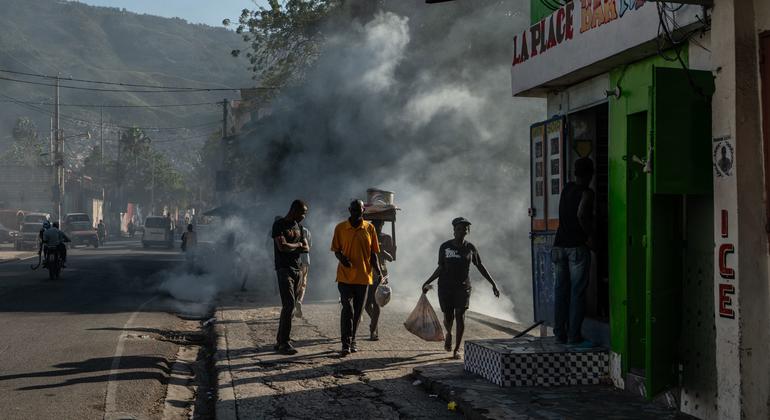The Caribbean island nation of Haiti continues to face extreme insecurity due to widespread violence, with rival gangs fighting for control of the capital, Port-au-Prince. This violence, which includes kidnapping for ransom, is occurring in the midst of political and economic crises, as well as poverty and underdevelopment. Chantale Valcourt, the head of national NGO CAPAC, experienced the trauma of having her two daughters kidnapped on their way to school. Despite this, she remains committed to her work, feeling a moral obligation to support vulnerable populations in her community.
Valcourt’s daughters were released safely after a ransom was paid, but the incident has had a lasting impact on her family. The school her daughters attended never fully reopened, leading Valcourt to send them out of the country for their safety. Despite the ongoing danger in Port-au-Prince, she remains determined to continue her work, feeling a sense of duty to her community and humanity as a whole. Valcourt’s experience highlights the daily reality faced by many Haitians and the dangers that humanitarian workers must navigate in their efforts to support vulnerable populations.
CAPAC, the NGO led by Valcourt, partners with the World Food Programme (WFP) to support vulnerable populations, with a focus on social justice, gender equality, and poverty elimination. The organization works in some of the most challenging and gang-controlled areas in Haiti, including Cité Soleil, La Saline, and Martissant. However, access to these areas is difficult due to ongoing clashes between gangs and the Haitian National Police, making it hard to deliver aid quickly to those in need. The forced displacement of vulnerable people has led to increased suffering and instability in recent days.
The situation in Haiti remains desperate, with armed gang attacks and intense shooting causing widespread destruction of civilian infrastructure, such as schools and hospitals. Many people in gang-controlled neighborhoods remain hidden in their homes, making it challenging for organizations like CAPAC and WFP to reach them with much-needed assistance. Despite the ongoing challenges and dangers, Valcourt and her team remain committed to their mission of supporting vulnerable populations and working towards social justice and gender equality in Haiti.
The ongoing violence and insecurity in Haiti highlight the urgent need for international support and assistance to address the root causes of the crisis. The combination of political instability, economic challenges, poverty, and gang violence has created a dire situation for many Haitians, particularly women and girls. Organizations like CAPAC and WFP play a crucial role in providing aid and support to those most in need, but more resources and attention are needed to address the underlying issues contributing to the ongoing crisis in Haiti.









